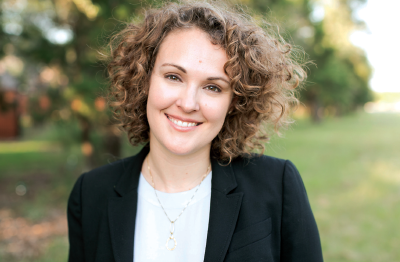Training Aims to Improve PTSD Treatment Nationwide
Abstract
The University of Texas Health Science Center will train mental health professionals across the country in cognitive processing therapy and prolonged exposure to help veterans with PTSD.
The University of Texas Health Science Center in San Antonio kicked off a nationwide initiative last month to train mental health professionals in two leading therapies for posttraumatic stress disorder (PTSD).
The goal of the initiative, called STRONG STAR, is to boost local access to high-quality care for the growing number of combat veterans and military personnel affected by PTSD since Sept. 11, 2001. The first two-day intensive training was held in New York City, and other sessions will be held throughout the country over the coming year.

Katherine A. Dondanville, Psy.D., A.B.P.P., is a STRONG STAR Training Initiative program director. STRONG STAR provides training in prolonged exposure and cognitive-processing therapy. The treatment was found to be effective in research funded by the departments of Defense and Veterans Affairs.
Individuals suffering from PTSD often can’t find a local mental health provider who has expertise in treating the disorder, explained Katherine A. Dondanville, Psy.D., A.B.P.P., STRONG STAR program director and associate professor in the Department of Psychiatry at the University of Texas Health Science Center, San Antonio. Between 10 percent and 20 percent of combat veterans have PTSD, recent studies show, compared with 3.5 percent of non-veteran adults.
STRONG STAR provides training in prolonged exposure and cognitive-processing therapy—treatments chosen after research funded by the departments of Defense and Veterans Affairs showed them to be among the most effective for PTSD, Dondanville explained. “We are rapidly translating what we are learning in research to our clinical practice.”
Cognitive-processing therapy helps individuals identify the maladaptive thoughts that perpetuate their PTSD. A common example would be for a patient to make statements such as “ ‘It’s my fault the trauma happened,’ and ‘If I had taken a different route, my buddy would still be alive,’ ” Dondanville said. Cognitive-processing therapy helps patients who are “stuck” to look more objectively at their thoughts and determine if they are realistic or helpful.
Prolonged exposure involves “in-vivo exposure,” or repeated confrontation with situations and objects that cause distress but are not inherently dangerous. For example, veterans returning from combat are often extremely averse to crowds or seeing roadside debris, because it triggers memories of bombings, Dondanville said. For prolonged exposure, the therapist and patient develop a hierarchy of avoided situations and then the therapist guides the patient to systematically confront each situation.
Prolonged exposure also encompasses psychoeducation, breathing retraining, and imaginal exposure, for which patients revisit a traumatic memory, repeatedly recounting it out loud. In prolonged exposure, patients learn that situations and thoughts that trigger memories of the trauma are not dangerous, and that they can handle them.
In 2017, STRONG STAR provided training in prolonged exposure and cognitive-processing therapy in seven Texas cities, with funding from the Texas Health and Human Services Commission. A grant from the Bob Woodruff Foundation has allowed the program to expand nationally, to sites chosen for their high veteran population and wide geographic reach.
Last month’s STRONG STAR training was on prolonged exposure. Other upcoming training locations include Orlando; Los Angeles; Tacoma, Wash.; Chicago; Colorado Springs, Colo.; and Dayton, Ohio.
STRONG STAR plans to train 200 mental health professionals over the coming year. Participants agree to treat at least five veterans in exchange for the subsidized training.
“We’re filling the gap in access to training,” Dondanville said. “If you’re a provider that works in private practice, it’s not common to have access to training in cognitive-processing therapy or prolonged exposure. Very few mental health providers just pick up a book and learn how to do a very specific form of therapy like this.”
Local providers who obtain the training can use it to also help civilians affected by PTSD, which can result from a variety of traumas, such as first responders witnessing extreme situations, or individuals who experience domestic violence, community violence, childhood sexual abuse, or house fires. “The impact of the program is beyond just veterans and service members,” Dondanville said. Patients or physicians looking to find a qualified PTSD therapist can utilize the STRONG STAR referral network.
For civilians treated with cognitive-processing therapy and prolonged exposure, the rate of full recovery from PTSD, defined as no longer meeting its diagnostic criteria, is about 80 percent, Dondanville said. For veterans and military personnel, the rate of full recovery dips to about 40 percent to 60 percent.
Still, patients undergoing the therapy typically experience personally meaningful improvements, such as being able to engage in activities with their family, Dondanville said. “Their trauma no longer haunts them in the same way. Neither therapy can take away the memories, but both lead to reengagement in a meaningful life. Follow-up with patients five to 10 years later shows that they tend to maintain their improvements. So when people get better, they stay better.” ■
More about the STRONG STAR training initiative, including patient referral sources, can be accessed here.



